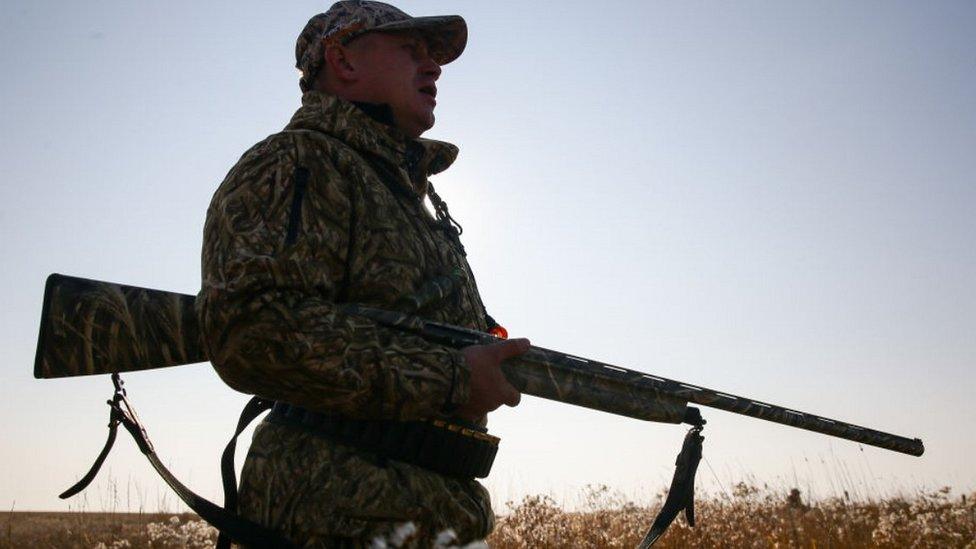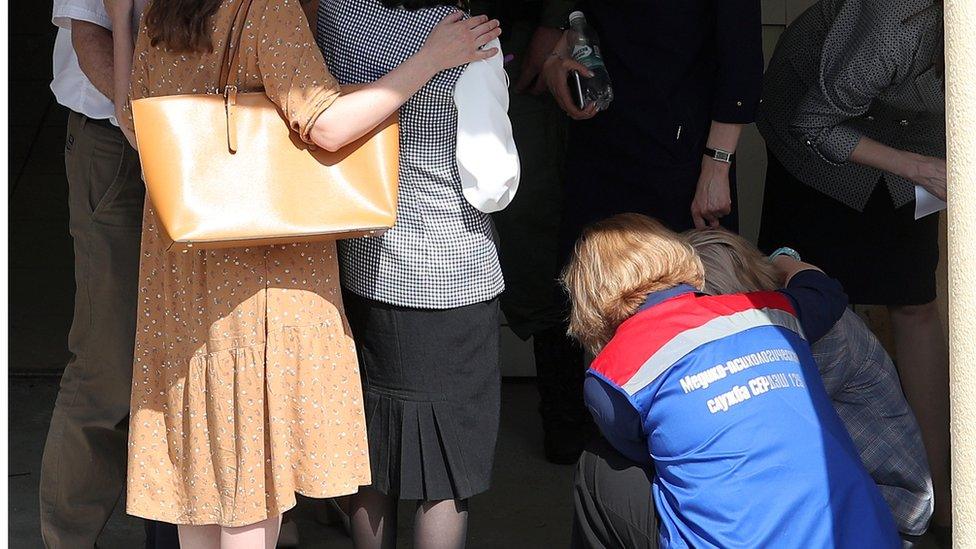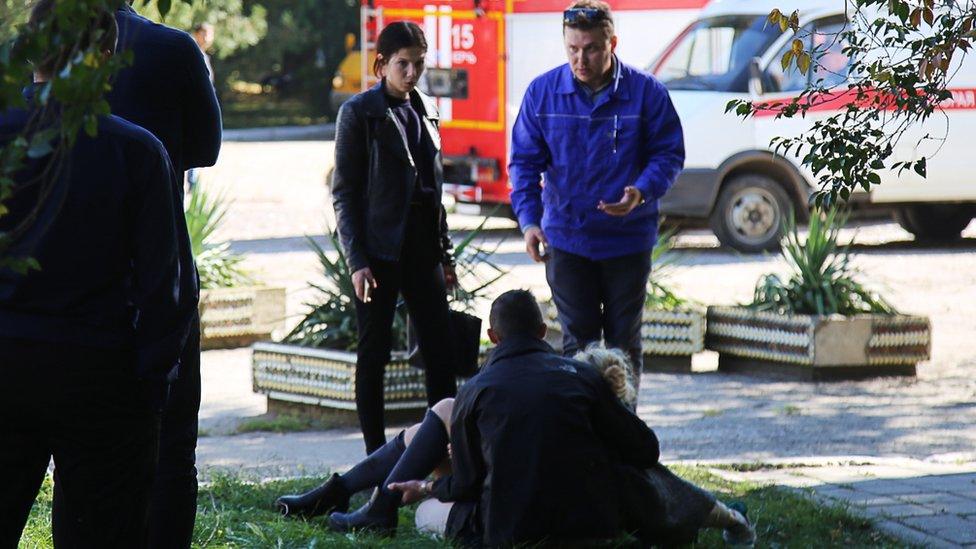Russia to tighten gun rules after school shooting
- Published

A Russian hunter with shotgun - such weapons are common in rural areas
The gun rampage at a school in the city of Kazan has prompted President Vladimir Putin to order a tightening of Russia's gun controls.
A 19-year-old, Ilnaz Galyaviev, was detained and he is the suspected shooter. Seven children and two adults were killed. Dozens more were wounded and some are in critical condition.
A Russian MP says the weapon used was a semi-automatic shotgun - a type popular among hunters. Reports say Galyaviev had a licence for it. The gun is relatively cheap in Russia, costing upwards of 20,000 roubles (£190; $280).
The same type of gun was used by a teenager, who killed 20 people at a technical college in the city of Kerch in Russian-annexed Crimea in 2018, then shot himself.
School shootings are relatively rare in Russia, partly because there are strict gun ownership regulations. There are far more private gun owners in the US than in Russia. But this attack has highlighted weaknesses which Russian politicians are demanding be addressed.
The Kremlin says the Russian National Guard, a paramilitary state security force, must look into the status of weapons that can be registered for hunting in Russia but are considered assault weapons elsewhere.
In January 2020 the National Guard said about four million Russians were legal owners of 6.6 million firearms.
Patchy monitoring
But Russian politicians say better data collection on gun owners and sales is needed.
MP Anatoly Vyborny, a specialist in that area, called for a central online database to alert officials. He said it should show, for example, if police had reported a gun owner to be a drug addict or alcoholic.
There are also calls to raise the minimum age for licence-holders - currently it is 18.
The most senior MP, Duma Speaker Vyacheslav Volodin, said Tatarstan's school security was better than in some other regions of Russia. But some youths there had been attracted to "extremist groups" he added.
Video shows students escaping from school windows
To get a gun licence in Russia you need certificates from medics, including a psychiatrist and ophthalmologist, and you have to complete a course on safe handling of weapons. You must then get a special safe to store the weapon and have it inspected by police, BBC Monitoring reported in 2018.
But there is a large black market in guns - partly fuelled by the eastern Ukraine conflict - and illegal guns are bought on the dark web, usually with cryptocurrency.
Medicals not systematic
And getting a gun licence is easier in practice than it appears on paper, Olga Ivshina of BBC Russian reports.
She says the medical checks are often not very thorough.
She found that the psychological check for would-be gun owners was done in the same place as for those applying for a driving licence.
"The psychiatrist just asked me whether I hallucinated or heard any strange voices - and checked the database. That was it," she said.
"Doctors just check that the person doesn't have a registered history of mental illness or mental disability."
Applicants also have to provide a urine sample, to catch any drug abusers, but sometimes there is cheating with hidden samples, Ivshina says.
Speaking in parliament, Russian MP Vitaly Milonov called for regular psychiatric examinations for gun owners - several times a year. He also said gun owners should undergo regular spot checks to detect any drug abuse.
Another problem is the proliferation of Russian-made "traumatic" guns - non-lethal guns usually firing rubber bullets - which gangs convert into lethal firearms.
Compounding those risks, many schools in Russia struggle to pay for guards from their own school budgets. Often they cannot afford adequately qualified guards.
The Russian website Guardinfo.online reported that in the Kerch case, the gunman easily walked past an elderly caretaker and into the college, carrying the shotgun in his rucksack.
Related topics
- Published11 May 2021

- Published17 October 2018
